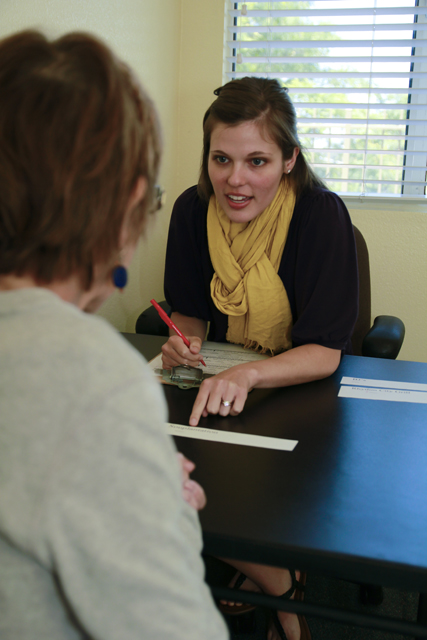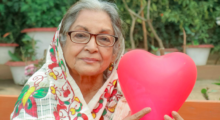 Helen McNeal is Executive Director of the California State University Institute for Palliative Care, the first statewide educational and workforce development initiative dedicated specifically to palliative care. The Institute at the flagship campus, CSU-San Marcos, will offer palliative care training for professionals, and it will educate the public about the value of palliative care and how to access it. Today, we talk with Helen about the work the Institute is doing to bring palliative care awareness to the public.
Helen McNeal is Executive Director of the California State University Institute for Palliative Care, the first statewide educational and workforce development initiative dedicated specifically to palliative care. The Institute at the flagship campus, CSU-San Marcos, will offer palliative care training for professionals, and it will educate the public about the value of palliative care and how to access it. Today, we talk with Helen about the work the Institute is doing to bring palliative care awareness to the public.
Dana: Let’s begin with a definition of palliative care.
Helen: When you say “palliative care”, people assume you mean end-of-life care, and that’s not accurate. Palliative care is about care focused on quality of life, care that goes along with relief of suffering and quality of life and ensuring people have what they need to maximize quality of life if they have a serious or chronic illness. It can go hand-in-hand with curative treatment. One aspect of palliative care is hospice, but that’s not all it is. What we hope the public learns is that palliative care is appropriate from diagnosis on.
 Dana: Can you give a brief overview of how the Institute serves the public?
Dana: Can you give a brief overview of how the Institute serves the public?
Helen: The California State University Institute for Palliative Care is hosted at CSUSM in San Marcos, California. Our focus is to educate the public on what palliative care is and to help them understand how to access it and advocate for it in the community. On a broader level, our goal is to bring together the various parts of palliative care in our community and create a tapestry of support for people with chronic illnesses.
Dana: In the initial press release when the Institute launched, you said the “role and benefits [of palliative care] are not well understood”. What do you believe is the cause of so little awareness of palliative care? Is it that we continue to make that connection with hospice?
Helen: It’s because in the United States the roots of palliative care lie in hospice care. People know more about hospice care. It’s only more recently that hospital systems incorporated palliative care, and that there was a medical specialty in hospice and palliative medicine. The grouping of the two creates confusion. The minute you say “hospice” or “end-of-life care”, people shut it down and say “they’re not dying”, so we don’t need to talk about palliative care.
Dana: Do medical institutions run into issues offering palliative care to patients who would benefit from it because people don’t understand what’s being offered?
Helen: Actually, it begins with physicians. They confuse palliative care with end-of-life care. That’s the first battle. Members of the public will ask for palliative care, and the physician will say “they’re not dying”, so that’s not necessary. We need to educate the public to be able to advocate to push physicians to understand the reality of palliative care. The other focus at the Institute is educating working professionals to understand themselves.
The second challenge is that in the state of California only 60 percent of hospitals have palliative care programs. Part of the reason is that they don’t understand that palliative care not only improves the patient and family experience of the care, but also lowers cost and reduces re-admissions. The challenge is finding [hospitals willing to invest] money, because you need to understand that the benefit is to the hospital as a whole. Hospitals are reluctant to invest [in palliative care programs].
Dana: What makes CSU San Marcos a good starting point for this type of program?
Helen: One of the trustees, Roberta Achtenberg had experience both with people having positive and negative experiences with palliative care (or not getting it at all if they needed it), and she wanted to address it. We are the largest workforce development engine in the United States. We educate 70 percent of the healthcare professionals in California — so, she said, “Why are we not doing something for palliative care?” She also knew that the CSUSM president, Karen Haynes, who has a background in social services, would understand the importance.
Second, CSU San Marcos is one of the first schools to integrate palliative care into training for all nurses.
Dana: That’s before the Institute?
Helen: Right. All graduates in the nursing program have training in introduction to palliative care.
Third, we have a 21st century campus, which offers the technology to implement these programs. We’ll create here a model that can be replicated at other CSU campuses, as well as nationwide.
Dana: Is part of your work in educating hospitals to incorporate palliative care programs?
Helen: We educate hospitals, the public and working healthcare professionals.
Dana: How does palliative care fit into our modern health care system, which you already indicated is very focused on “curative treatment”?
Helen: Palliative care, I believe, is critical to the health care system in the United States, given our aging population. Although it’s not limited to those who are older. Approximately 50 percent of Americans over 55 have at least one chronic illness, so palliative care should be part of their lives. They should at least know about it.
Palliative care also by its nature is about choice. Often when I speak to groups in public, I ask, “What gives your life meaning and joy?” Because I want them to focus on the things that give them quality of life. When we focus on quality of life in the health care system, we realize that your choices and my choices may be different about what quality of life is. Respecting that choice is so important.
 Dana: How does palliative care address that difference in what we consider quality of life?
Dana: How does palliative care address that difference in what we consider quality of life?
Helen: It’s about communication, about goals of care (i.e., quality of life). I believe [palliative care] is great medicine. The skills associated with it, like communication skills, as well as dealing with symptoms, should be skills that every medical professional has in their repertoire.
Dana: Do you think medical professionals are generally lacking those skills right now?
Helen: Some may. I don’t think in general. I think there are challenges of time, reimbursements. We have to be creative about how we address it. We need to educate palliative care specialists as well as every nurse, doctor, social worker, receptionist, etc., around general palliative care skills that will improve the patient experience. The education related to palliative care plays an important role in our health care system in general.
Dana: Are there conflicts with our traditional way of thinking about medicine that prevent us from incorporating palliative care?
Helen: Our medical education has traditionally focused on cure, and consequently, we don’t focus on what the patient wants, if that wish is beyond cure. It’s also important that we help physicians understand that choosing palliative care doesn’t mean that there’s a failure in the care they’re providing. It’s another specialty that can improve the outcome [for patients]. The data shows that it does improve outcome — palliative care doesn’t have to mean “end-of-life”.
We need to undo the disease-curative focus in medicine. Cure is very important, of course, but we need to respect individual chioce and recognize the need for quality of life.
Dana: Is it actually more challenging to get this message to medical professionals than to the public?
Helen: Yes, absolutely. But I don’t believe it’s because they don’t want to pay attention to it. Throughout their education and practice, they have learned a focus on beating the disease. It’s the same battle we faced in introducing preventative care.
Dana: What tips can you offer our readers to help them support palliative care awareness?
Helen: The most important thing is to have a conversation with your family about what’s important to you. What brings you joy, what gives you quality of life? Then go from there to the idea: If I can’t have that kind of quality of life, what are my choices? You don’t have to start with, “If you’re dying, what do you want?” Start with, “What gives you joy?” Have those conversations early and often. They should occur naturally in families.
Read our coverage of The Conversation Project for resources to help you start that conversation.
Also, anyone with serious or chronic illness in family, prepare questions before you go for a medical visit, because you’ll forget what you want to talk about. Take someone [who is uninvolved] with you to take notes, so you can process the information later.
Dana: Is there anything else you’d like to add?
Helen: The most important thing is understand that palliative care is for anyone with a serious or chronic illness. Don’t wait to ask your physicians about its role if you have a serious or chronic illness. Recognize that there may not be support in your community, but by asking you begin the conversation and the movement in your community.
Learn more:
- More on The Conversation Project from SevenPonds.
- More from CSU Institute for Palliative Care in our interview with Judith Redwing Keyssar.

 How Can We Raise Awareness About Palliative Care? An Interview with Helen McNeal
How Can We Raise Awareness About Palliative Care? An Interview with Helen McNeal



 “Summons” by Aurora Levins Morales
“Summons” by Aurora Levins Morales
 How To Dispose of a Body In Space
How To Dispose of a Body In Space














